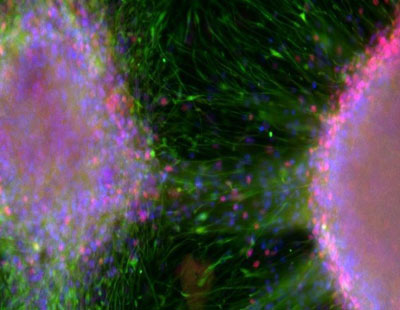Parkinson’s UK grants £400,000 to research projects in Scotland

Parkinson’s UK has announced £400,000 in funding for two projects at the University of Edinburgh to investigate the potential causes of Parkinson’s disease.
The projects which will employ cutting-edge technology to understand how changes in brain cells may lead to the condition developing.
Both studies could also open the door to new treatments for the condition, with one seeking to develop a “complete and accurate model of Parkinson’s in a dish” and the other focussed on a currently little-known gene, which could play a role in the disease.
Parkinson’s is the fastest growing neurological condition in the world and affects almost 13,000 people living in Scotland.
There are more than 40 different symptoms, ranging from tremor to anxiety, and while some can be treated with medication, often the drugs cause significant side-effects.
Parkinson’s UK has committed close to £400,000 to the two projects at the University of Edinburgh. This is part of a wider round of grant funding, which has seen £1.83m allocated to institutions across the UK.
Development of a complete and accurate model of Parkinson’s
In this project, Professor Tilo Kunth of the University of Edinburgh Centre for Regenerative Medicine, aims to make it much easier to test new Parkinson’s medicines and understand the importance of infection in Parkinson’s development.
The Kunath Lab team will use live imaging technology to examine a key protein believed to play a central role in damaging brain cells in Parkinson’s.
They will see how the protein, alpha-synuclein, behaves when it’s exposed to viruses and toxins. The team will also investigate whether certain drugs can improve the waste disposal system in brain cells, stopping proteins, like alpha-synucein, from building up.
“There are four factors that might trigger damage or make it worse for people with Parkinson’s – viral infection, exposure to environmental toxins, poor cellular waste disposal and an individual’s genes. Looking at them in combination will enable us to build a complete and accurate model of Parkinson’s in a dish.”
“That’s important because we can use this model to predict which new medicines are most likely to work in people, speeding up the process of making new treatments available for Parkinson’s.
“In addition to being a great model for testing drugs, this work will help to answer outstanding questions about how viruses impact on alpha-synuclein, which could change how we think about treating people with Parkinson’s.” – Professor Kunath
Genetic research and Parkinson’s
Doctor Kathryn Bowles’ at the UK Dementia Research Institute at the University of Edinburgh is looking into the little-known gene LRRC37A2 gene which may play a role in the development of Parkinson’s.
This work could deliver new targets for Parkinson’s treatments. Previous research has found that people with higher levels of the LRRC37A2 gene are less likely to develop Parkinson’s. The gene is thought to help protect the brain, and having less of it could be a risk factor for Parkinson’s.
Dr Bowles and the research team will investigate how having more of this gene in the brain could prevent people from developing Parkinson’s.
“If we can confirm this gene is protective and understand why, that will open up new avenues for therapy.
“We can then say, these are the mechanisms we need to target, this is how we can change the expression of this gene, and that is a pathway to therapy. It’s quite far away, but it’s a new avenue to go down.” – Dr Bowles
Parkinson’s UK is the largest member-led charitable funder of Parkinson’s research in Europe. The charity has allocated £55.8m to research projects in the UK over the last decade, including more than £6m in Scotland.
James Jopling, Scotland Director for Parkinson’s UK, said: “We are dedicated to funding research which will bring us new understanding and new treatments for Parkinson’s, faster. It’s fantastic to see new charitable investment in two cutting-edge research projects right here in Scotland.
“None of this would be possible without the incredible fundraising efforts of the Parkinson’s community here in Scotland.
“We fund the most promising Parkinson’s research, and it is brilliant that Scotland’s universities are at the forefront of global progress towards new treatments and a cure.
“The Parkinson’s community in Scotland is incredibly engaged with research, and having local access to world-class scientists enables them to become even more involved.”



